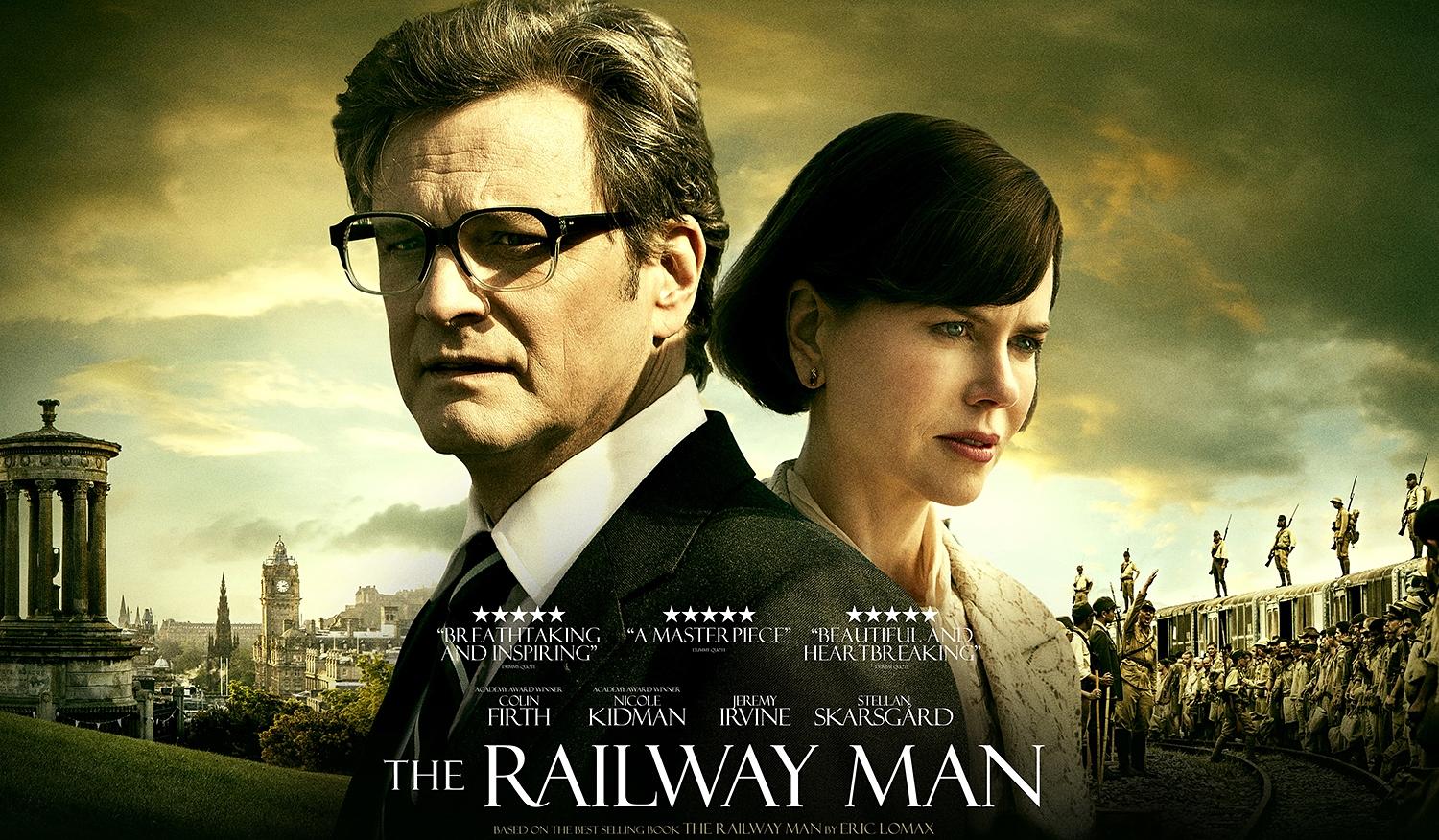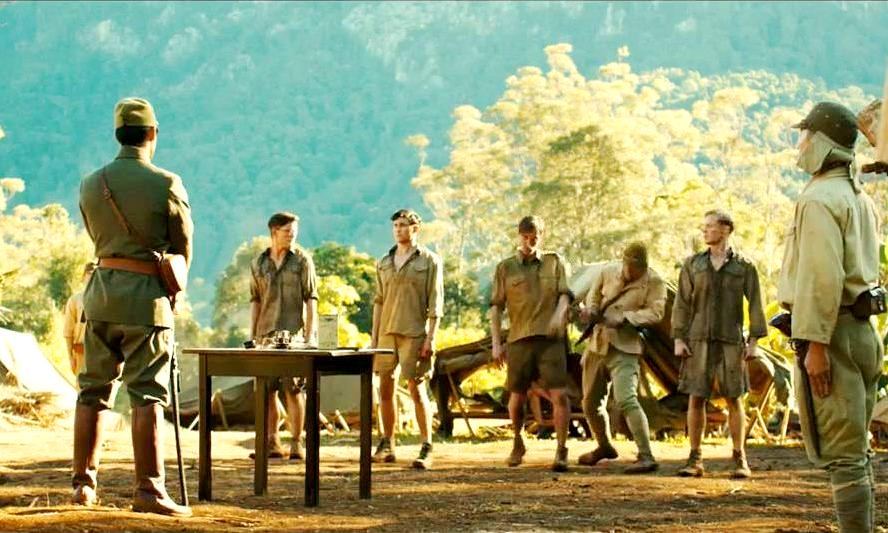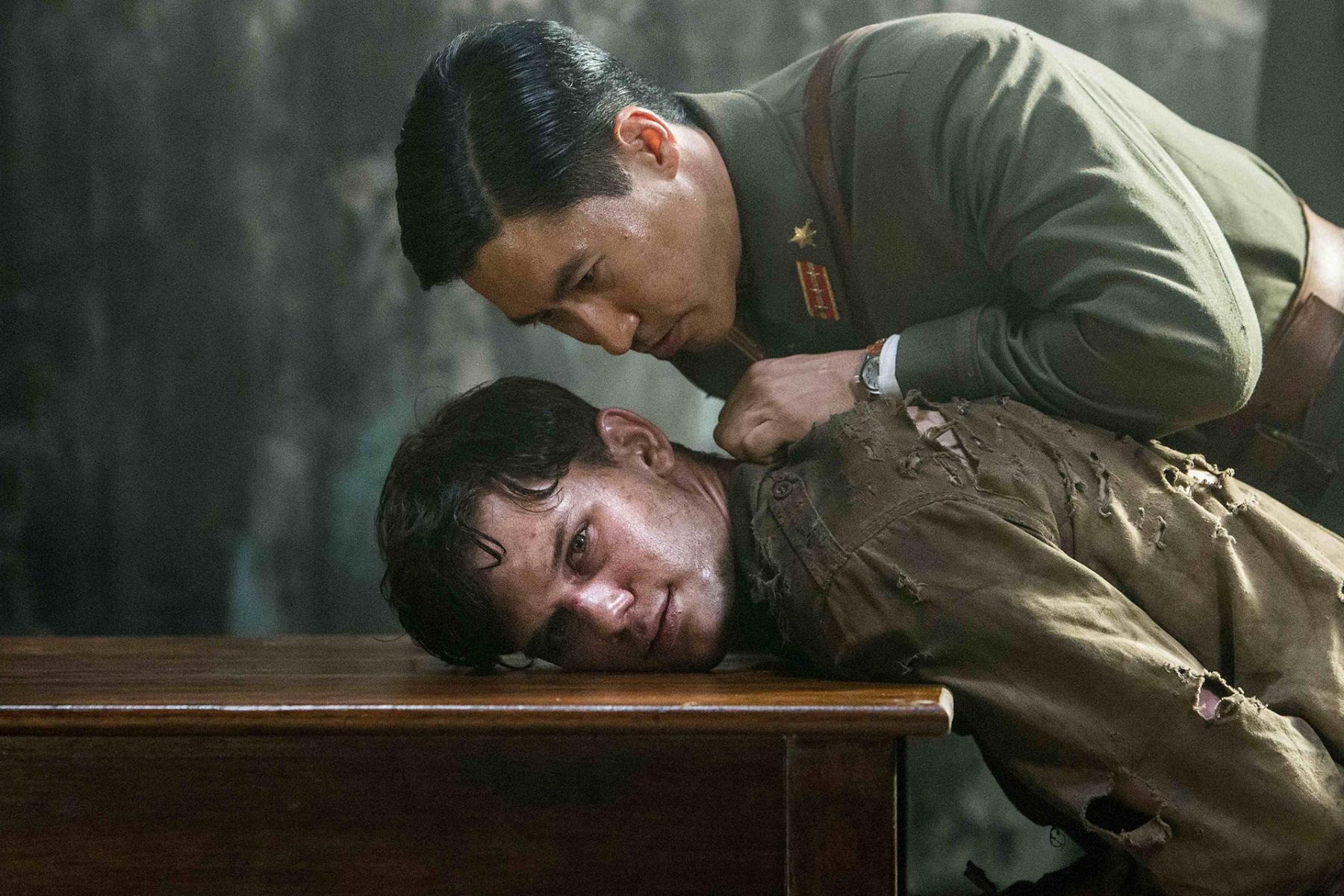The Railway Man (2013)

Released in 2013, The Railway Man is a poignant war drama directed by Jonathan Teplitzky, based on the 1995 autobiography of Eric Lomax. The film stars Colin Firth, Nicole Kidman, Jeremy Irvine, and Stellan Skarsgård, and portrays the harrowing true story of Lomax’s experience as a prisoner of war during World War II. Set against the backdrop of Japan’s brutal treatment of Allied prisoners, The Railway Man explores the themes of trauma, forgiveness, and the long-lasting effects of war on the human soul. The film is a compelling and emotional portrayal of resilience, pain, and reconciliation.
The Railway Man follows Eric Lomax (Colin Firth), a former British soldier who, during World War II, was captured by the Japanese and forced to work on the infamous Burma Railway. He is subjected to brutal treatment and physical and psychological torture. Years after the war, Lomax lives a quiet life, haunted by the memories of his captivity. However, when he meets Patti (Nicole Kidman), a woman who eventually becomes his wife, he begins to confront his past. Lomax’s journey to face his former captors and find closure is central to the film, leading to an emotionally charged confrontation with his tormentor, Takeshi Nagase (Hiroyuki Sanada).
The characters in The Railway Man are deeply complex, with the central character of Eric Lomax being portrayed as both a victim and a survivor of war. Colin Firth gives an outstanding performance, capturing the internal struggle of a man who is trapped between the pain of his past and the hope for healing. Patti, played by Nicole Kidman, represents love, understanding, and the possibility of redemption, offering support to Lomax as he grapples with his trauma. The relationship between the two is both tender and heartbreaking, as Patti strives to help Lomax confront the emotional scars that he has buried for so long. The film also explores the journey of forgiveness, especially when Lomax encounters Nagase, played by Hiroyuki Sanada, who is also struggling with the repercussions of the war.
At its core, The Railway Man delves into the long-term effects of war and trauma. Lomax’s suffering, both physical and psychological, is a central theme in the film, illustrating how war can leave lasting scars that affect not only the victims but also their loved ones. The film portrays the difficulty of moving on from the horrors of the past, as Lomax’s memories of torture and abuse resurface throughout his life. However, it also emphasizes the importance of healing and the transformative power of love and forgiveness. Lomax’s journey is not only about confronting his past but also about finding a way to move forward and break free from the cycle of hatred and revenge.

One of the most powerful themes in The Railway Man is forgiveness. The film explores the emotional complexity of forgiving those who have inflicted unimaginable pain. Lomax’s decision to meet his former captor, Takeshi Nagase, is an act of profound bravery, as he seeks closure and understanding. The film shows that forgiveness is not a simple or immediate process, but rather a painful and personal journey. The moment of reconciliation between Lomax and Nagase is one of the most emotionally charged scenes in the film, highlighting the idea that forgiveness does not erase the past but can offer a path to peace and healing.

The Railway Man is visually striking, using a combination of flashbacks to the war years and present-day scenes to illustrate the contrast between Lomax’s past and present. The flashbacks to the brutal conditions on the Burma Railway are filmed with a raw intensity, immersing the audience in the horrors of war. In contrast, the scenes of Lomax’s life after the war are softer, yet filled with the emotional weight of his trauma. The cinematography captures the beauty of the natural landscapes while also conveying the internal emotional landscape of the characters. The film’s pacing is deliberate, allowing for moments of reflection and emotional resonance, and the score complements the mood, adding depth to the story’s emotional impact.

The Railway Man is a powerful and moving film that examines the lasting impact of war on individuals and the transformative power of love and forgiveness. With stellar performances by Colin Firth and Nicole Kidman, the film brings Eric Lomax’s story to life in a way that is both heartbreaking and inspiring. It highlights the struggles of living with trauma and the difficulty of moving beyond the pain of the past, while also offering hope for healing and reconciliation. The Railway Man is a testament to the resilience of the human spirit and a poignant reminder of the cost of war, not just on the battlefield but in the lives of those who survive.











